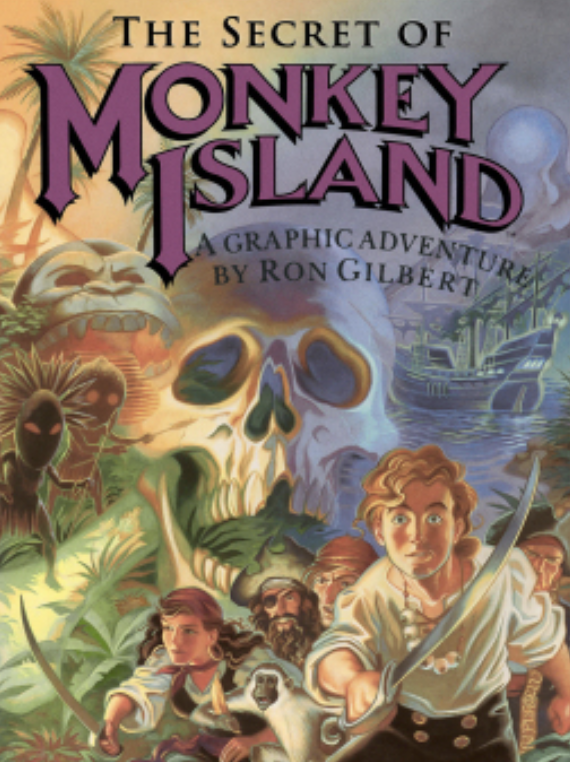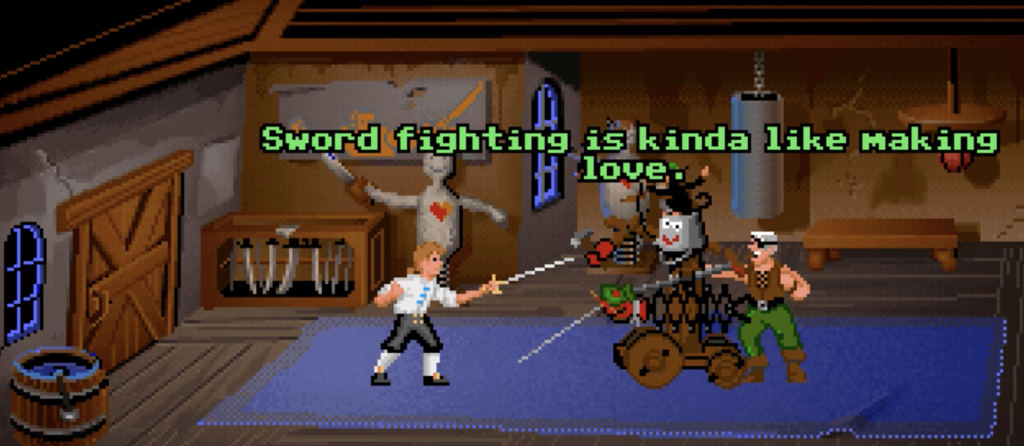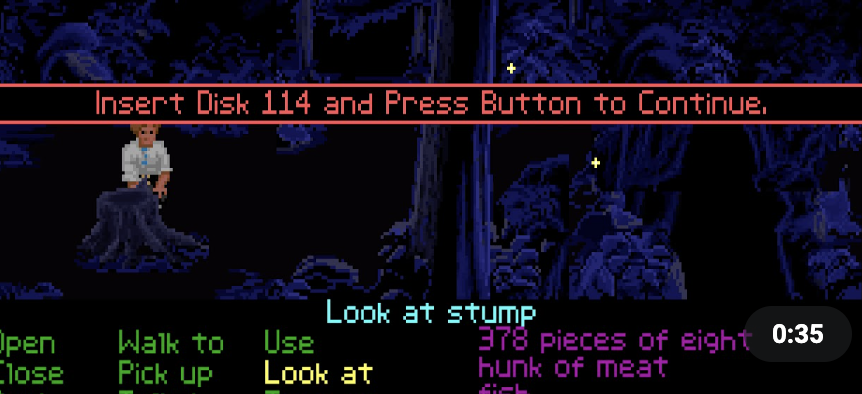While I am not particularly fond of the puzzle-solving and exploration genre, The Secret of Monkey Island quickly caught my attention for its nostalgic graphics, excellent choice in music, and of course for its senseless humor. The Secret of Monkey Island is a graphic adventure game that was released in 1990. Graphic adventure games revolve around the player assuming the role of a protagonist in an interactive story driven by exploration and/or puzzle solving. The Secret of Monkey Island is just one of many examples of this genre but this game is known to have become one of the most influential and popular games of the early 90s.

The protagonist of this game is Guybrush Threepwood, he is a wannabe pirate who is best described as a simpleton with zero experience wielding a sword, treasure hunting, etc. Despite lacking any real skills, he is adamant about becoming a pirate but in order to do so, he must undergo three challenging tasks to prove himself “worthy.” Part One of this game consists of Threepwood facing these challenges while meeting friends and enemies along the way. The three tasks he must assume are: Treasure Hunting, thievery, and sword fighting. For the purpose of this game review, I will focus on part one of The Secret of Monkey Island.
Threepwood wants to desperately become a pirate yet he is probably the worst qualified person to be one. Why does he want to be a pirate? There isn’t any reason given. The only assumption the player can make is that Threepwood wants to be a pirate because he feels like it. In a similar way, players also assume the roles portrayed in video games for the same reasons. Because they “just feel like it ” there isn’t a logical or well thought out reason, it just seems fun. Threepwood becomes a very relatable character in this sense. Just like the average real life person, he is ill-experienced in pirate capabilities. While videogames are notorious for allowing players to take on the role of these magical/powerful characters, immersing themselves in the illusion that they themselves are also powerful, this game does the opposite. This game is a reflection of reality because in reality, it’s a lot harder to assume these positions of power and may not even make sense in relation to a player’s actual abilities.
While the game implies that Threepwood is not fit to be a pirate, when Threepwood asks the three pirates if they can make him a pirate, they don’t need much convincing. In fact, they quickly tell him he can become a pirate as long as he completes three tasks: Treasure Hunting, thievery, and sword fighting. Because they are quick to offer him a chance to be a pirate, this conveys the overarching concept that anyone can be a pirate. For players this can also translate as: Anyone can be a hero. So in retrospect, players don’t have to assume these mystical roles in video games to be considered a Hero. It can be a lot easier and simpler than that. Ironically though, Threepwood never technically becomes a pirate. When he looks for the pirates after completing the tasks, they aren’t there. So he never is able to show his proof, yet he carries on performing pirate-like adventures.
And to demonstrate this concept further, unlike most adventure games, this game pokes fun at almost every detail of the game. The notable humor of this game targets every character, every choice made, and especially the protagonist. This gives viewers comedic relief as it takes away from the pressing conflictions that the genre is usually associated with. The player can then interpret this as sometimes a situation doesn’t have to be melodramatic or serious for it to be considered worthy enough to be labeled as an “adventure” or as a challenge to overcome. It is simply the nature of the puzzle mechanic that allows for the adventure genre to exist. This game keeps challenging the genre to allow for a wider perspective that effectively reels in a larger audience. Sometimes adventure games can be too dense and hard to digest. Yet in The Secret of Monkey Island, while there exists the goal of becoming a pirate, the portrayal of Threepwood accompanied by senseless humor, makes it accessible for players to assume and identify themselves the role of a “Hero.”
The concept of Anyone can be a Hero is interesting because the attraction of the graphic adventure genre is navigating and completing puzzles in order to achieve the status of a “Hero” The secret of Monkey Island redefines what it means to be a hero and can even go as as far as to convey that Heroes aren’t necessarily needed. Sometimes you just need a someone who’s available to carry out these tasks, and if someone as clumsy and inexperienced as Guybrush Threepwood can do it, so can anyone else.


